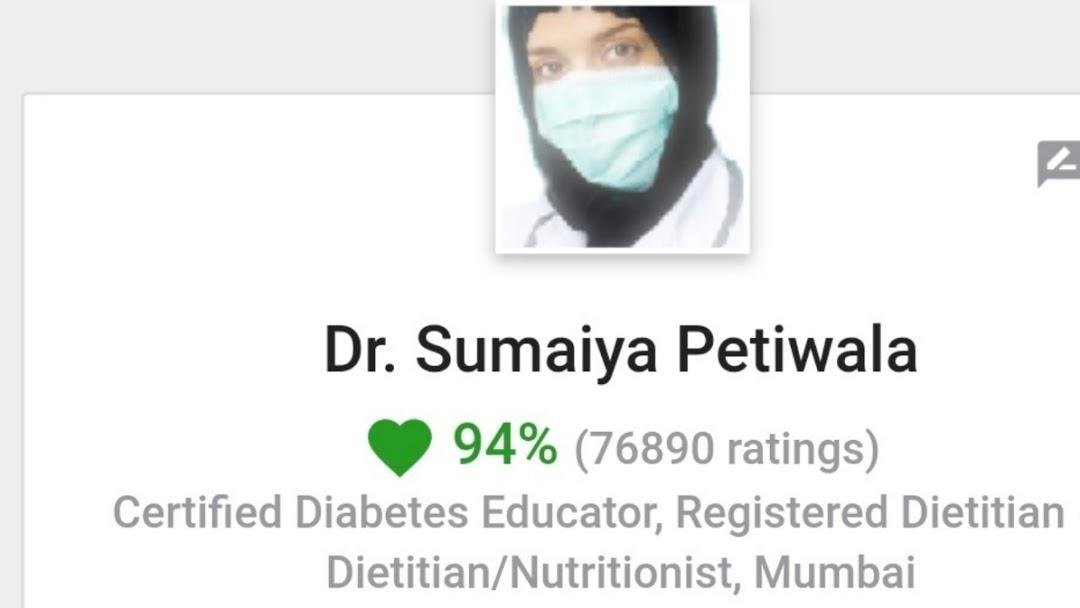As a registered dietitian, I often come across a lot of myths related to diet, nutrition, and exercise for weight loss. Unfortunately, many of these myths can be misleading and may actually hinder your weight loss progress.
There are many myths surrounding diet, nutrition, and exercise for weight loss that can be confusing and misleading. Some of these myths include the idea that all calories are equal, that skipping meals is an effective weight loss strategy, and that carbohydrates are bad for weight loss. Other myths include the belief that cardio is the only type of exercise that helps with weight loss and that you can’t eat out and still lose weight. To achieve sustainable weight loss, it’s important to understand and dispel these myths by consulting with experts such as registered dietitians, and developing an individualized approach that incorporates healthy habits and a balanced, whole-foods-based diet.
In this blog, I will debunk some of the most common myths and provide an action item to consult with a dietitian to get personalized guidance:
Myth 1: Carbs are bad for weight loss One of the most common myths is that carbs are bad for weight loss. While it is true that some carbs can be high in calories and may contribute to weight gain, it is important to note that not all carbs are created equal. Whole grains, fruits, and vegetables are all sources of healthy carbs that provide important nutrients and fiber. In fact, studies have shown that people who consume a diet high in whole grains tend to have a lower body weight.
Action item: Consult with a dietitian to learn how to incorporate healthy carbs into your diet in the right amounts.
Myth 2: You need to eat less to lose weight Another common myth is that you need to eat less to lose weight. While it is true that a calorie deficit is necessary for weight loss, it is important to do so in a healthy and sustainable way. Severely restricting calories can lead to nutrient deficiencies, a slower metabolism, and can even trigger binge eating.
Action item: Consult with a dietitian to determine the right calorie deficit for your individual needs and goals.
Myth 3: Exercise is the key to weight loss While exercise is an important part of a healthy lifestyle and can help with weight loss, it is not the only factor. Diet and lifestyle factors also play a significant role in weight loss. Additionally, over-exercising can actually lead to injury and burnout, which can hinder your weight loss progress.
Action item: Consult with a dietitian to develop a balanced exercise plan that complements your weight loss goals and fits your lifestyle.
Myth 4: Fad diets are the best way to lose weight Fad diets may promise quick weight loss, but they are often unsustainable and can lead to nutrient deficiencies. Additionally, many fad diets are not based on scientific evidence and can actually be harmful to your health.
Action item: Consult with a dietitian to develop a healthy and sustainable eating plan that works for you.
Myth 5: Skipping meals is a good way to lose weight Skipping meals can actually backfire on your weight loss efforts. When you skip meals, you may end up overeating later in the day or making unhealthy food choices due to hunger and cravings.
Action item: Consult with a dietitian to develop a meal plan that provides adequate nutrition and fits your schedule and lifestyle.
Myth 6: Supplements are necessary for weight loss While some supplements may aid in weight loss, they are not necessary and should not be relied upon as the sole method for weight loss. Additionally, some supplements can be harmful or interact with medications.
Action item: Consult with a dietitian to determine if any supplements are necessary for your individual needs and goals.
Myth 7: All calories are created equal While it is true that weight loss ultimately comes down to a calorie deficit, not all calories are created equal. The types of foods you eat can have a significant impact on your weight loss progress and overall health. For example, a 100-calorie snack of fresh fruit is a healthier option than a 100-calorie snack of processed junk food.
Action item: Consult with a dietitian to learn about healthy, nutrient-dense foods that can help you achieve your weight loss goals.
Myth 8: You can spot-reduce fat Unfortunately, spot-reducing fat is not possible. While you can build muscle in specific areas of the body through exercise, you cannot target fat loss in specific areas. Weight loss is a full-body process that requires a combination of healthy eating, exercise, and lifestyle factors.
Action item: Consult with a personal trainer or exercise physiologist to develop an exercise plan that focuses on full-body weight loss.
Myth 9: You need to cut out all fats to lose weight Fats are an important part of a healthy diet and are necessary for proper bodily function. While it is true that some types of fats can be high in calories and contribute to weight gain, cutting out all fats is not necessary or recommended. Healthy fats, such as those found in nuts, seeds, avocado, and oily fish, can actually help you feel fuller for longer and may aid in weight loss.
Action item: Consult with a dietitian to learn about healthy sources of fats and how to incorporate them into your diet in moderation.
Myth 10: Carbohydrates are bad for weight loss Carbohydrates are an important source of energy for the body and are necessary for proper bodily function. While some low-carb diets may result in weight loss in the short term, they are often unsustainable and can lead to nutrient deficiencies. Additionally, carbohydrates can help you feel fuller for longer and may aid in weight loss when consumed in moderation and in the form of whole, unprocessed foods.
Action item: Consult with a dietitian to learn about healthy sources of carbohydrates and how to incorporate them into your diet in moderation.
Myth 11: Cardio is the only type of exercise that helps with weight loss While cardio exercise can certainly help with weight loss, it is not the only type of exercise that can be effective. Resistance training, such as weight lifting, can help build muscle and boost metabolism, leading to increased calorie burn and weight loss. Additionally, incorporating a variety of physical activities into your routine, such as yoga, dance, or team sports, can make exercise more enjoyable and sustainable.
Action item: Consult with a personal trainer or exercise physiologist to develop an exercise plan that includes both cardio and resistance training, as well as activities that you enjoy.
Myth 12: You can’t eat out and lose weight Eating out can certainly present challenges for weight loss, as restaurant meals are often high in calories, sodium, and unhealthy fats. However, it is still possible to make healthy choices and enjoy dining out while on a weight loss journey. By researching menus ahead of time, making substitutions or modifications to dishes, and practicing portion control, you can still enjoy social meals while staying on track with your weight loss goals.
Action item: Consult with a dietitian to learn about strategies for healthy dining out and how to make the best choices for your individual needs and goals.
By understanding and dispelling these common myths, you can develop a healthy, sustainable approach to weight loss that works for you. Remember, consulting with a registered dietitian can provide you with personalized guidance and support for your weight loss journey.



